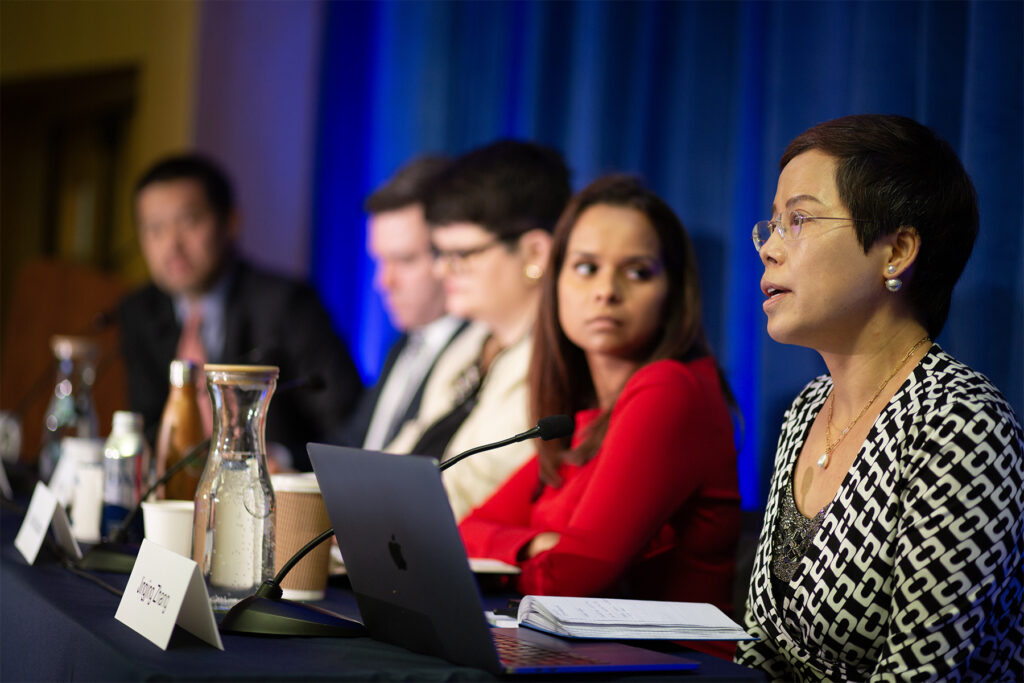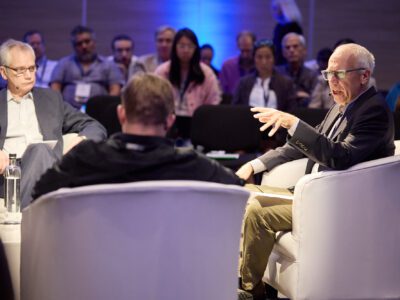Power of the People: Environmental Advocacy in China
Several of China’s most prominent environmental advocates will join a keynote talk at UCLA Law on the role of civil society in addressing China’s global environmental impacts.

China’s global rise has raised concerns about impacts on the environment in a bewilderingly wide range of issues. These include global climate change, deforestation, impacts on rare and endangered species, harm to fisheries, environmental impacts of overseas infrastructure, mining, and energy sector investments, to name just a few. Popular attention has often focused on Chinese government action (or lack thereof) and the behavior of Chinese companies “going out” into the world. What role are Chinese civil society organizations playing these days?
Chinese environmental groups had somewhat of a renaissance in the early 2000s, with groups such as Friends of Nature, Global Village of Beijing, Green Earth Volunteers, the Center for Legal Assistance to Pollution Victims (CLAPV), Green Watershed, Green Hanjiang, and Huai River Defenders. But in recent years, these groups and others have faced shifting political and cultural crosscurrents. On one hand, Chinese government in the Xi-era has embraced an environmental ethos (under the rubric of “ecological civilization”) – a state-led, developmental and cultural take on environmentalism. Chinese citizens have also increasingly demanded greater environmental amenities, as Chinese society has grown economically and grown less tolerant of environmental sacrifices in the name of development. On the other hand, China has strengthened its institutional and political systems of control and built an ever-more robust system of civil society “management.”
Yet, perhaps surprisingly to Western observers, there remains space for civil society groups to operate. Some have chosen a more technical advocacy path that aligns closely with state prerogatives. Others have sought to work internationally as global activity of Chinese companies and financial institutions – whether as part of China’s Belt and Road Initiative or otherwise – has grown, bringing environmental problems in its wake. How are Chinese environmental advocates addressing the environmental impacts of complex Chinese supply chains and navigating fast-evolving domestic and global politics?
This space where civil society groups operate is what we will be exploring on Friday, April 19 at UCLA School of Law in Los Angeles, where we are hosting an event called The Power of the People: The Role of Civil Society in Addressing China’s Global Environmental Impacts. The event will feature a keynote speech from MA Jun, one of China’s most prominent environmental advocates.
In the 1990s, Ma Jun was working as a reporter for the South China Morning Post when he realized that access to information was key to controlling pollution. Criss-crossing the country gave him a window into the environmental cost to China’s tremendous economic growth. Air pollution, water violations, environmental degradation. His book in 1999 titled China’s Water Crisis chronicled it all. It’s been compared to Rachel Carson’s Silent Spring, a clarion call for the American environmental movement. He is the founder of the Chinese environmental group, Institute for Public and Environmental Affairs (IPE) and a Goldman Prize winner. His work draws on massive data sets to improve environmental transparency and to clean up global supply chains.
Mr. Ma will be joined by a panel of three other Chinese environmentalists.

- ZHANG Jingjing (pictured above, R) is a Chinese environmental lawyer, known as “China’s Erin Brockovich.” She has recently founded the Center for Transnational Environmental Accountability, a group that seeks to hold major Chinese corporations accountable for their overseas environmental impacts in Africa, Southeast Asia, Latin America and elsewhere.
- ZHAO Zhong is the founder of a grassroots Chinese environmental group called Green Camel Bell, which was based in far-western China. He is currently a fellow at UCLA School of Law’s Emmett Institute and is studying ways in which Chinese civil society can be effective in global settings, such as major environmental treaty negotiations.
- REN Peng works for the Chinese group, Global Environmental Institute (GEI), which is one of China’s most prominent environmental groups engaged in advocacy beyond China’s borders. GEI has, for example, worked in Southeast Asia and Brazil to improve the environmental footprint of Chinese companies and to reduce the environmental impacts of soft commodities trade with China.
If you are in Los Angeles, please join us for this event (UCLA School of Law, Room 1357, 12:15-1:30pm). RSVP here. This lunch talk is part of a full day of events led by our UCLA Pacific Basin Law Journal, the Emmett Institute on Climate Change and the Environment, and co-sponsored by the UCLA Law International and Comparative Law Program, the UCLA Center on Chinese Studies, and the UCLA Asia-Pacific Center.







Reader Comments